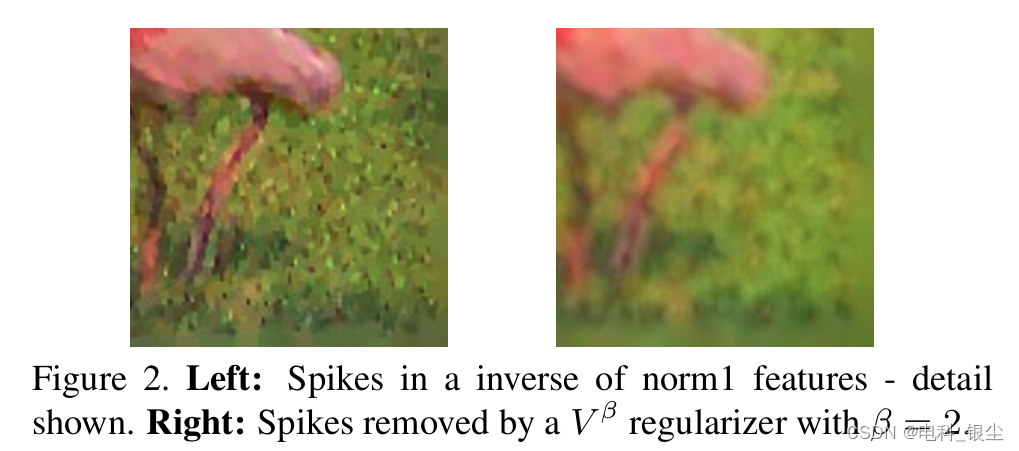
文章目录
文章目录
- [00 写在前面](#00 写在前面)
- [01 基于Pytorch版本的TV Loss代码](#01 基于Pytorch版本的TV Loss代码)
- [02 论文下载](#02 论文下载)
00 写在前面
在医学图像重建过程中,经常在代价方程中加入TV 正则项,该正则项作为去噪项,对于重建可以起到很大帮助作用。但是对于一些纹理细节要求较高的任务,加入TV 正则项,在一定程度上可能会降低纹理细节。
对于连续函数,其表达式为:

对于图片而言,即为离散的数值,求每一个像素和横向下一个像素的差的平方,加上纵向下一个像素的差的平方,再开β/2次根:

01 基于Pytorch版本的TV Loss代码
python
import torch
from torch.autograd import Variable
class TVLoss(torch.nn.Module):
"""
TV loss
"""
def __init__(self, weight=1):
super(TVLoss, self).__init__()
self.weight = weight
def forward(self, x):
batch_size = x.size()[0]
h_x = x.size()[2]
w_x = x.size()[3]
count_h = self._tensor_size(x[:, :, 1:, :])
count_w = self._tensor_size(x[:, :, :, 1:])
h_tv = torch.pow((x[:, :, 1:, :] - x[:, :, :h_x - 1, :]), 2).sum()
w_tv = torch.pow((x[:, :, :, 1:] - x[:, :, :, :w_x - 1]), 2).sum()
return self.weight * 2 * (h_tv / count_h + w_tv / count_w) / batch_size
def _tensor_size(self, t):
return t.size()[1] * t.size()[2] * t.size()[3]
if __name__ == "__main__":
x = Variable(
torch.FloatTensor([[[1, 2, 3], [4, 5, 6], [7, 8, 9]], [[1, 2, 3], [4, 5, 6], [7, 8, 9]]]).view(1, 2, 3, 3),
requires_grad=True)
tv = TVLoss()
result = tv(x)
print(result)